Thank you for joining us here at the Austen Connection! You can see all of the conversations including all the podcast episodes here. If you are not signed up yet you can sign up below to get the conversations dropped right into your inbox. Enjoy!
Hello friends,
So: Does Jane Austen even do happy endings?
It’s a very fair question! And one we’ve explored at the Austen Connection - and now diving deeply into this question is a fascinating new book: Jane Austen and the Price of Happiness is just out, from Hopkins Press.
Professor Inger Brodey is the founding director and co-host of the marvelous conversation, dialogue, and research program Jane Austen & Co., and many of us here at the Austen Connection have engaged with their conversations series such as Race & the Regency, and also their seminars from the Jane Austen Summer Program.
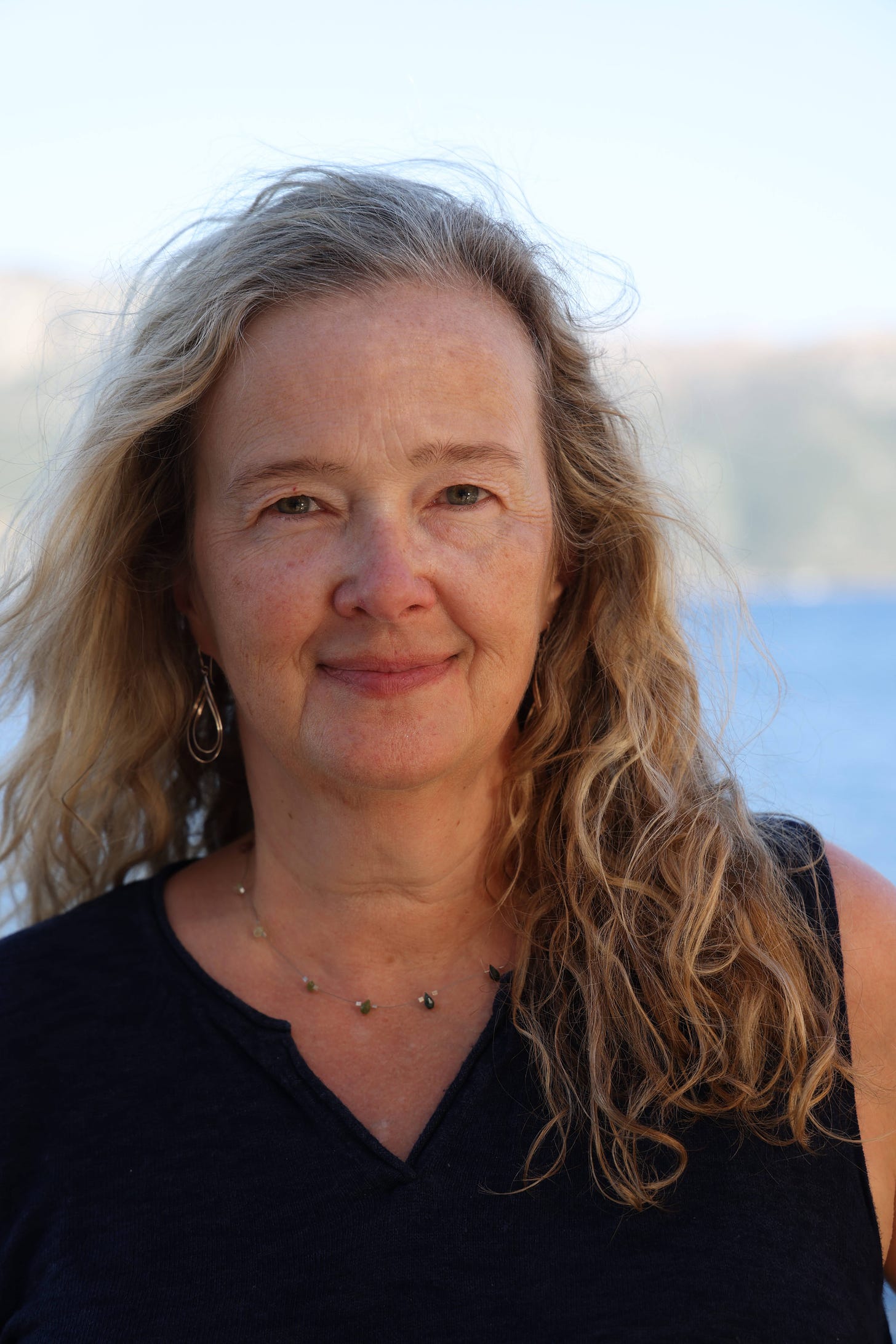
And now with this new book Dr. Brodey has produced a deep study on Jane Austen’s endings: How happy are they really, and what’s Austen doing with them?
The answers are surprising: They involve token survivors, metafictions, ambiguous resolutions, and crashing the fourth wall where Austen’s narrators slow down the pace of the narrative, peer behind the veil of fiction, and talk to us. The reader.
If that all involves aspects of Jane Austen’s stories you’ve never thought about before - stay tuned. Author Inger Brodey is a highly original thinker and scholar, and this conversation explores Jane Austen as not only a young woman of the Regency, and as a weaver of these classic, iconic stories we know, but also as: an Artist.
This is all in the conversation we’re honored to have with Inger Brodey in our latest podcast episode. You can listen here and wherever you get your podcasts - and if you prefer reading, here’s a transcript of the conversation, lightly edited.
Enjoy the conversation!
Plain Jane
How did you discover Jane Austen? What was your first novel of Jane Austen?
Inger Brodey
Pride and Prejudice was my first, and I owe it all to my brother. We were an immigrant family from Denmark, so I didn't grow up with English books around and strong images of what had been written in English. And when he was in college, he was living at home, going to college, and had a fantastic English literature course. And the teacher recommended - for summer reading, I think - Pride and Prejudice. So he … said, “I think you'd really like this.”
And so he handed me the novel, and then I read all the books immediately.
There's a kind of gendering of Austen readership that people seem to buy into now, of most of it being for women or mostly for women. And that just hasn't been my experience. I definitely don't associate Austen that way.
Plain Jane
And you know, and they didn't for hundreds of years, clearly. Do you - I mean, you're someone who really pays attention to the adaptations - do you feel like the adaptations have led to the gendering factor?
Inger Brodey
Oh, I definitely think so. I don't think it's actually necessarily inherent to them. But they've been perceived as, a lot of them, as “chick flicks.” And then the issue of them being primarily about romance is, of course, a big part of this. And that's, of course, the topic of the Happiness book, is the misunderstanding of Austen as primarily a romance writer …
Plain Jane
Well, let's get into that. OK, so the book Jane Austen and the Price of Happiness is really about the endings of Jane Austen. So let me ask right away: Do you feel Jane Austen, does she do happy endings? … You've written a whole book exploring this! What's your answer?
Inger Brodey
Yes and no, I'm afraid.
I think she loves happy endings, but she is also very conscious of their power. Austen is very deeply invested as an educator, even in her humorous novels, and so she builds kind of protection against the happy ending into her work, which is something I figured out while I was writing this book.
Plain Jane
Yeah, so that's really complicated. She does both. She builds the happy ending in.
But something that's really fun that you point out is - that I hadn't realized - [in] every single ending Jane Austen uses what you call distancing techniques. I think that it's part of her seduction in some ways. But she glances at us, she breaks the fourth wall. So in some ways, it's really obvious. And as you say, to a young reader just wanting to get to that HEA [this] can be frustrating. But it's also masterful.
So can you talk a little bit about what you call the metafictional endings, where she kind of comes out of this fictional world that she's spent so long creating for us …. What is she doing with that?
Inger Brodey
Yeah, so she kind of jumps out of the pages all of a sudden … when she starts talking about “my Fanny,” or she's talking in Northanger Abbey about how we can see the pages of our book that's open in front of our eyes that … we’re coming to an end.
Plain Jane
That one that you just mentioned is so great, where … it's so brilliant for someone to say like, “You can see, reader, we're almost to the end of this novel.”
Inger Brodey
“From the telltale compression of the pages”! Yeah, no, it's lovely.
So she breaks the fourth wall, as you said, and makes us aware that we are reading a novel.
On the one hand, it's funny, right? Northanger Abbey - she's constantly doing it in the whole book, so it's a little bit less obtrusive. But in the other novels sometimes the only place is at the end of the novel, where she breaks the fourth wall and suddenly makes us aware that we are reading a book, that we are reading fiction. It's an interruption, and it's - I draw the analogy to theater - it's like the lights coming on before the play is actually completed. And that's jarring, right?
You don't want to suspend your suspension of disbelief at that point! But she does it, I think, to make us aware that the gift of a happy ending that she's giving us has strings attached. And that the gift - it's not a necessary outcome of the novel that she just gave us. But something that's being presented partly because it's a generic expectation.
But also that we shouldn't take it for granted.
[S]he does it, I think, to make us aware that the gift of a happy ending that she's giving us has strings attached. And that the gift - it's not a necessary outcome of the novel that she just gave us. But something that's being presented partly because it's a generic expectation. But also that we shouldn't take it for granted.
So anyway, that that's one of the themes, I think, in the book - the way that she uses metafiction to make us realize that nothing is inevitable here.
Plain Jane
Like you say in the book: There's a lot of things going on with what you call jumping out of the page: “Here I am. Hello, here we are.” ….
And I love this, and [it’s] very helpful in understanding Austen the Artist, which is so often absent from the conversations. I feel like people are very shy about talking about her art a lot of times. There are some big exceptions - like John Mullen. ….
But we so often don't really unpack this the way that you do. And there are some things artistically, I think, going on that I want to ask you a little bit about. … For instance, she's straddling realism and romance. So you point out in the book [that] one really big thing happening here is that this is a realist artist. This is an artist doing something different, really, with the novel and really turning it into art. Well, let me just stop there and say, Do you agree with that? Have I just paraphrased what you're saying accurately, or is that a little oversimplification?
Inger Brodey
I like what you're saying. I think that's exactly right. I realized when I started out that I was kind of doing a biography of Austen through her endings. … But what became really clear to me [is] to what extent she considered herself a novelist from the very start.
I realized when I started out that I was kind of doing a biography of Austen through her endings.
You know, I pointed out how the first version of Northanger Abbey was called Susan: A novel. When it was advertised by the first publisher - and all the other titles the publisher put out that year had these elaborate, gothic, kind of sensational titles. But hers was just very plain: Susan: A novel.
And also a lot of the women writing, the contemporaneous people, women who were writing novels, were all of them also in other genres: So there'd be plays, there'd be poetry, there'd be instructional volumes. But she's the only one who just zeroed in on the novel and unapologetically made that her focus from the start. And I think that that kind of absolutely laser-focus on the novel and seeing the potential of what it could be was one of her big gifts.
Plain Jane
So the big thing, though, that you were starting to say that she's doing with this metafictional ending, as you call it, and creating the distance, is also showing an alternate ending.
And another thing we’ve discussed here - and I think it's the researcher, the scholar, Alison Sulloway, who calls them token survivors, which was just a phrase that jumped out at me. … So what's going on with the alternate endings, and what might-have-been?
Inger Brodey
Oh, absolutely. So the alternate endings in general, are the sad outcomes, all the ways in which things could have gone wrong.
There's a line near the end of Persuasion, which says …
Plain Jane
Hang on! … [Grabbing and reading from Brodey’s book, which quotes this bit of Persuasion]: “Who can be in doubt of what followed? When any two young people take it into their heads to marry, they are pretty sure by perseverance to carry their point, be they ever so poor or ever so imprudent or ever so little likely to be necessary to each other's ultimate comfort.”
Inger Brodey
Yes, exactly. I think people interpret it very differently than I do a lot of times. But, I mean, I think that that is … so false, right?
And even eight and a half years earlier, that's not what happened, right? They did take it into their minds and Captain Wentworth didn't follow through at that time. So in a way, Persuasion is a book about the alternate ending, because it starts with the sad outcome of the marriage not working out, right? So that book, the whole book, is really a story about the alternate ending and what can correct it.
But I think she wants us to see this. It's a whole thing. It's part of the poignancy of a happy ending, is understanding how it could have not occurred, right? I mean, that adds so much to the emotional power of all of her endings.
Persuasion is a book about the alternate ending, because it starts with the sad outcome of the marriage not working out, right? So that book, the whole book, is really a story about the alternate ending and what can correct it.
But I think she wants us to see this. It's a whole thing. It's part of the poignancy of a happy ending, is understanding how it could have not occurred, right? I mean, that adds so much to the emotional power of all of her endings.
And also, I think one of the main themes in the book is how Austen separates various aspects of conclusions: So there's a romantic ending, there's some kind of restoration; and there's also a recognition that the various main characters come to understand.
So in general, what she does is she separates those things and makes it the restoration and the recognition, [which] are much more important to her than the romantic outcome.
So they generally happen first, especially recognition. So that recognition is necessary, but not sufficient for the romantically happy outcome.
Plain Jane
What you're saying there is so radical, really: that there's something going on with these heroines … that’s more important than the romance. …
You point that out the great phrase - that Austen doesn't use I guess until Persuasion: “resources for solitude.” It's such an important theme for her. … You also call it enlightenment. So the enlightenment happens for the heroine … before the romance. So yet another really powerful thing that's happening in an Austen novel. And why do you think that we miss that?
Inger Brodey
I mean, I think it's maybe the key to her success … all the both ands in her novels.
You know, for the modern feminist reader, you can celebrate the strong, independent woman. But you also get to have the romance and happy marriage alongside it, right?
This [is] kind of like the cake and eating it too.
But so there's so many things about her like that. She's got this radical, she's got the conservative, in her. She's got this fierce independence, but she's also got this domestic piece. So those ambivalences - or complex, complicated messages - that she's sending are really, really central to why she's survived and flourished as an author.
She's got this radical, she's got the conservative, in her. She's got this fierce independence, but she's also got this domestic piece. So those ambivalences - or complex, complicated messages - that she's sending are really, really central to why she's survived and flourished as an author.
And I think that the Happy Ending is another example where, yes, she gives the growth of the individual in the absence of the happy outcome; but she also gives us the happy outcome.
And maybe it's just a matter of what we look for today, that people focus so much on the happy ending.
But to tell you the truth, one of the big things that I really came to recognize writing this was how little the audience has changed, how [little] we as an audience have changed from the audience that she was writing for. …
I think people are still obsessing about the the kind of beauty, or character, or whatever it is - wealth - that's required to be a heroine. I'm surprised that we still do that to the extent we do, and [we] need her corrections just as much today as her own readers did.
Plain Jane
… You pointed out something that was really surprising and kind of hiding in plain sight that I had never realized: When you have Jane Austen going from Mansfield Park to Emma … we went from the most powerless, to start out with, heroine to the most powerful heroine, and in some ways a very privileged heroine. But you pointed out that … there are heroines that are sort of facing external challenges, and there are heroines that are facing internal challenges. The more privileged ones have to get over their internal … they have to get over themselves. And some of them, like Anne Elliot and Elinor have to get over their families. Interestingly Sense and Sensibility has both kinds. But [Austen] tends to switch: She'll go from Fanny to Emma and then back to Anne Elliot, and who knows what Charlotte Haywood was going to do!
Can you talk a little bit about what's going on with the heroines and the challenges that they have and what's Austen doing with this?
Inger Brodey
Sure, well, that's another thing that, I mean, I had always realized, but became much clearer to me in writing this book: that she's such a restless artist. She's so ambitious, and so when she moves from Pride and Prejudice - she could easily have written more of these “light and bright and sparkling” stories with another Elizabeth, right? But she chooses to make the most Elizabeth-like person into a semi-villain character in Mary Crawford. So instead, she goes as far as she can the other direction from Pride and Prejudice. It's part of her sense of responsibility as an artist. She thinks: Charm, OK, I can do charm. This was fun; I can do charm. But it's almost too charming. Well, you know what about if people get drawn into that, or think that heroines have to be charming? OK, I'm going to write a novel against charm, and about the harm in charm. And so she does it. She does Fanny Price.
It's part of her sense of responsibility as an artist. She thinks: Charm, OK, I can do charm. This was fun; I can do charm. But it's almost too charming. Well, you know what about if people get drawn into that, or think that heroines have to be charming? OK, I'm going to write a novel against charm, and about the harm in charm. And so she does it. She does Fanny Price.
And as you say, the movement to Emma. I used to think of it as heroines who are right and heroines who are wrong. You know, that's how she alternates. It just happens that everyone, all the heroines who are wrong are the really vivacious, talkative ones who are in love with their own wit. So she's very aware of the dangers of falling in love with your own wit, because I think she was somewhat susceptible to it to herself. And maybe, you know - I don't want to say she chastises herself for it, but - she does seem to be constantly putting new strictures on herself and trying new challenges.
It makes me so sad in terms of thinking about what she might have, as you say, come up with next. But that's the biggest lesson there, to me, is just how much she was constantly challenging herself and stretching the bounds of the genre that she was so proud of.
Plain Jane
I love that. That's another thing that you don't shy away from is, you know, contemplating: Of course, there's an author here. She jumps off the page to say hello. So she's there and you're saying that she's experimenting. …
And another thing - a word that you use that also I don't hear very often, but we do use it in the Austen Connection quite often - is: it's a fantasy. And you know what? Scholars don't use that word very often. But yes, Austen is probably enjoying these happy endings a little bit too.
You point out a lot in the book, a lot of really key moments in her letters, where she has talked about the novels. She's enjoying them. She's enjoying those characters. They are people to her as well. You know, she also loves Elizabeth Bennet, right, and possibly Darcy as well. Maybe both. You know, it's not either or, as we make so many of these things in our society today; it's both. It's all of it. It's the art and the philosophy and the experimentation on human nature, the working out of human nature through these pages. And then also, yes: also a fantasy.
Inger Brodey
And think about how excited she must have been to be such a pioneer and so self aware of what she was doing and what she was contributing. I think she was terribly jealous of the people who got more attention during her lifetime for - speculative on my part - but the people whose novels were better understood. I mean, she was so annoyed at the review from Sir Walter Scott, who, when he left out … Mansfield Park, out of that review. And I also think about how horrible those nearly 10 years were where she didn't have a single place to live and to concentrate on her work and how she must have just been dying to write all of these things down. So anyway, I guess I'm getting emotional about Austen here!
Plain Jane
There’s plenty of reason to, Inger!
This has been wonderful. Thank you for your time.
Inger Brodey
Thank you. It's been a pleasure. Thanks for reading so carefully.
Plain Jane
It was such a pleasure. And I’ll see you over the airwaves and over the YouTube waves at Jane Austen & Co.
—--
And we hope to see you too, friends! Thank you, for joining this conversation!
What are thoughts on the endings to your favorite Jane Austen novel or novels? Talk back to us!
Have you ever thought Jane Austen’s endings could indeed be happier? Have you ever felt frustrated by the ending of Mansfield Park, or have you ever been puzzled by those narrators “asides” - where the author seems to jump off the page to talk to us about the story itself? And did this help clarify what’s going on with Jane Austen’s Fleabag-style breaking of the fourth wall?!
Most importantly and simply: What’s your favorite Austen ending? We want to know!
Meanwhile, friends, have a wonderful Sunday, wherever you are and whatever you are reading and watching.
Take a moment for some tea, some fiction, and some beautifully complicated HEAs.
Yours most uncomplicatedly,
Plain Jane
Cool links and community
Jane Austen & the Price of Happiness by Inger Brodey, from Hopkins Press
More on Jane Austen & Co - Many of you here already know Dr. Inger Brodey from Jane Austen & Company’s wonderful research and conversation series, or you may have engaged with the popular Jane Austen Summer Program. And stay tuned, the Jane Austen and Company Team and the Austen Connection are planning some collaborations that we’re excited about. More to come!
Also discussed in the full conversation - Dr. Brodey’s favorite Austen film adaptations, which are explored in her book, including: Autumn de Wilde’s EMMA. 2020 film, Ang Lee’s Sense and Sensibility, Amy Heckerling’s Clueless (of course!), and an unexpected favorite, Pride and Prejudice: A Latter-Day Comedy, by Andrew Black.
You can listen to this conversation and all our conversations at the Austen Connection podcasts right here, and wherever you get your podcasts. The podcast episodes are always free for everyone!
The late scholar Alison G. Sulloway’s book is Jane Austen and the Province of Womanhood - it’s a big fave here at the Austen Connection.
Professor John Mullan’s book is What Matters in Jane Austen - it’s also really fun to watch videos of his talks, which are something like Austen stand-up comedy.
More to read - here are some archive posts on Austen’s HEAs, Austen’s Token Survivors, and Austen’s Fleabag-style breakage of the fourth wall. Enjoy.
If you enjoyed this post and podcast, feel free to share it with a friend!


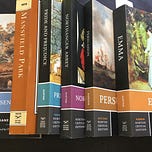
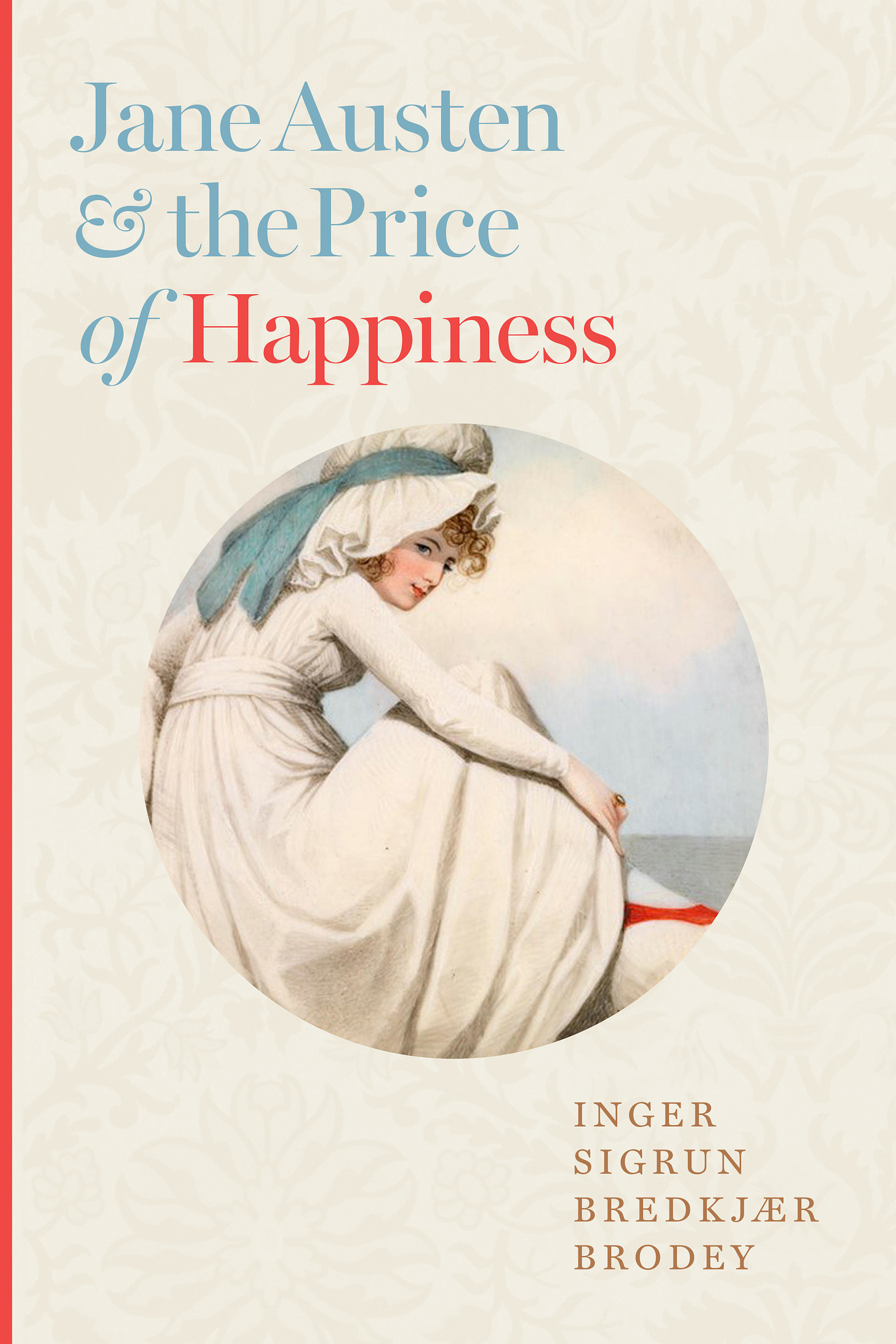

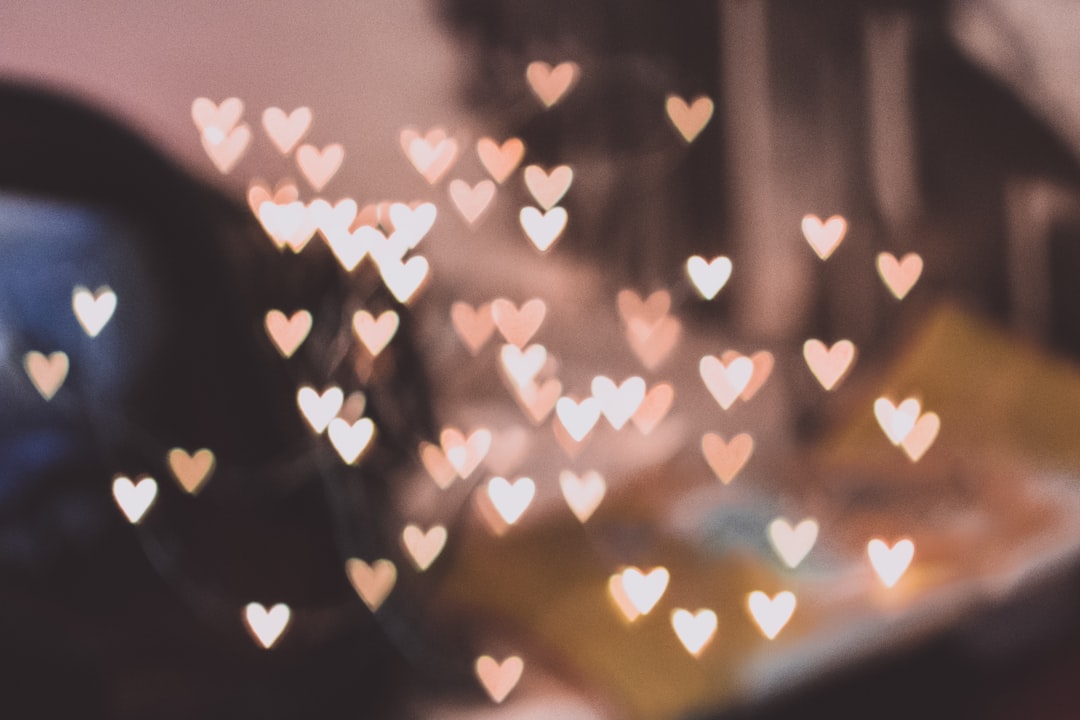
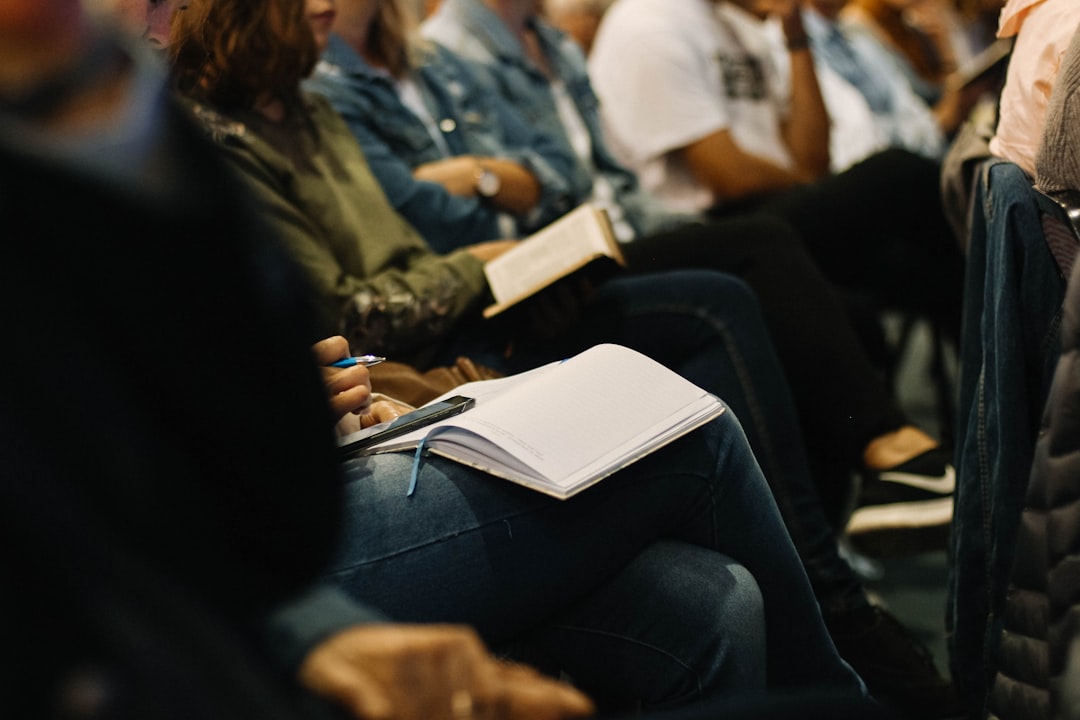


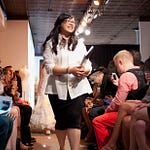
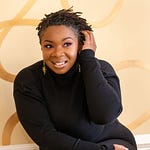
Jane Austen's happy endings have strings attached